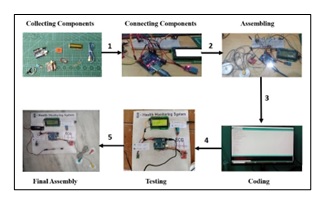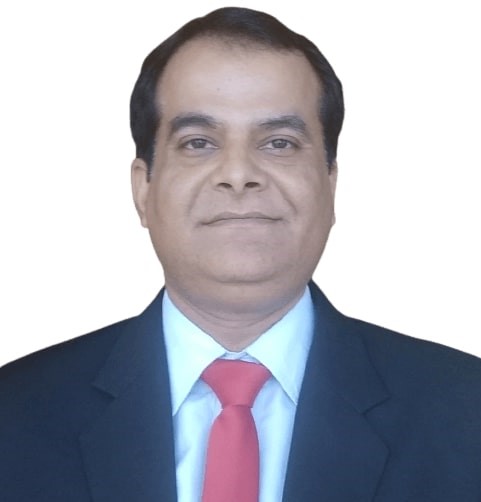Design of Smart Health Monitoring System for Disease Detection

DOI:
https://doi.org/10.54060/jieee.2023.76Keywords:
Arduino UNO, BPM (Beats Per Minute), Electrocardiogram, Sensors, PrognosisAbstract
The most valuable asset is one's health. However, there isn't much free time for today's people to keep an eye on their health. A health monitoring system that tracks users automatically is necessary to alert users to their health status. Rapid advancement in internet and technology provides improvement in the health system. In the conventional method, people are required to visit their doctors on a regular basis for health checkups. The use of technology in the health monitoring system can save valuable time by having the health status automation. Additionally, the cloud, which revolutionized data trans-formation, contributes to the development of a better and more dependable health monitoring system. One of the most important technology-based systems has been the healthcare monitoring systems, humans struggle with the problem of premature mortal-ity because people with various ailments don't receive prompt medical care. The main objective was to create a trustworthy smart health monitoring system so that medical professionals could keep an eye on their patients, whether they were in a hospital or at home, using the proposed integrated healthcare system to ensure better and more dependable care. A prototype of health monitoring system is created, and it will have a number of cutting-edge features that will revolutionize the healthcare sector, with less reliance on human labor and greater efficiency in tasks like temperature monitoring, ECG-analysis, ambient temperature and humidity supervising, oxygen level recording, and BPM monitoring, this system will work autonomously. Body temperature, BPM, oxygen, temperature, and humidity sensors are included in the system to help maintain optimal health. The system's accuracy, reliability, sensitivity, usability, and scalability will be tested through comprehensive testing and validation in actual healthcare settings. This enables proactive and individualized health management. The results are anticipated to develop healthcare technologies and improve the standard of healthcare services.
Downloads
References
M. M. Khan, “IoT based smart healthcare services for rural unprivileged people in Bangladesh: current situation and challeng-es,” in 1st International Electronic Conference on Applied Science, Switzerland: MDPI, pp. 1–6, 2020.
B. Srividya and V. Satyanarayana, “Personal lung function monitoring system for asthma patients using internet of things (IOT),” International Journal of Research in Electronics and Computer Engineering, vol. 6, 2018.
P. Srinivasan, A. Ayub Khan, T. Prabu, M. Manoj, M. Ranjan Et al., “Heart beat sensor using fingertip through Arduino,” Journal of Critical Reviews, vol. 7, no. 7, 2020.
V. Tamilselvi, S. Sribalaji, P. Vigneshwaran, P. Vinu, and. G. Ramani, “IoT based health monitoring system,”in2020 6th Interna-tional Conference on Advanced Computing and Communication Systems (ICACCS), Coimbatore, India, 2020.
Naveen, R. K. Sharma, and A. R. Nair, ―IoT-based Secure Healthcare Monitoring System, in 2019 IEEE International Conference on Electrical, Computer and Communication Technologies (ICECCT), pp. 1–6, 2019. doi: 10.1109/ICECCT.2019.8868984.
N. Gupta, H. Saeed, S. Jha, et al. ―Study and implementation of IOT based smart healthcare system, Proc. - Int. Conf. Trends Electron. Informatics, ICEI 2017, vol. 2018-Janua, pp. 541–546, 2018. doi: 10.1109/ICOEI.2017.8300718.
V. Bhardwaj, R. Joshi, and A. M. Gaur, “IoT-based smart health monitoring system for COVID-19,” SN Comput. Sci., vol. 3, no. 2, p. 137, 2022.
B. K. Bhoomika and K. N. Muralidhara, “Secured smart healthcare monitoring system based on IoT,” International Journal on Recent and Innovation Trends in Communication, vol. 3, no. 7, pp. 4958–4961, 2015.
A. Rahaman, M. Islam, M. Islam, M. Sadi, and S. Nooruddin, “Developing IoT based smart health monitoring systems: A review,” Rev. D Intell. Artif., vol. 33, no. 6, pp. 435–440, 2019. https://doi.org/10.18280/ria.330605.
Vandana Milind Rohokale, Neeli Rashmi Prasad, Ramjee Prasad, “A Cooperative Internet of Things (IoT) for Rural Healthcare Monitoring and Control”, Center for Tele InFrastruktur, Aalborg University, Denmark, pp. 978-1-4577-0787-2/11, 2011.
M. Malathi and D. Preethi, “IoT based Patient Health Monitoring System”,” International Journal of Engineering Research & Technology (IJERT), vol. 7, no. 1, 2019.
K. Haripriya, C. M. Aravind, V. Karthigayen, and P. Ganesh, “Patient health monitoring system using IoT and cloud based pro-cessing,” Indian J. Sci. Technol., vol. 9, no. S1, 2016.
P. Das, R. Deka, S. Sengyung, B. Kr, and H. Nath, “A Review Paper On Patient Monitoring System”,” Journal of Applied and Fun-damental Sciences, vol. 1, no. 2, 2015.
H. Bhat, N. Shetty, and A. Shetty, “A Review on Health Monitoring System using IoT”,” International Journal of Engineering Re-search & Technology (IJERT), vol. 6, no. 15, 2019.
N Gupta, H Saeed, S Jha, M Chahande, S Pandey, “IOT based health monitoring systems”, International Conference on Innova-tions in Information, Embedded and Communication Systems (ICIIECS), Amity Institute of Telecommunication Engineering and Management. Amity University Uttar Pradesh, Noida, India, 2017.

Downloads
Published
How to Cite
CITATION COUNT
License
Copyright (c) 2023 Mukul, Vivek Verma

This work is licensed under a Creative Commons Attribution 4.0 International License.

























